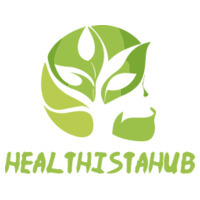Could you have a zinc deficiency? The following signs may indicate that you’re not getting enough zinc:
- Stretch marks
- Decreased immune response
- Increased susceptibility to viral infections
- Diabetes
- Loss of appetite
- Hair loss
- Skin problems (acne, eczema, etc.)
- White spots on the nails
- Slow wound healing
- Anorexia Nervosa
When zinc deficiency occurs, it can be due to several factors, including inadequate intake of zinc-rich foods, poor absorption caused by low stomach acid or other malabsorption conditions, increased bodily need for zinc, Pyrroles disorder, or increased excretion of zinc due to stress or other factors. Therefore, it’s crucial to recognize these signs early and take steps to correct the deficiency promptly.
Role of Zinc
Zinc plays an incredibly vital role in the body, as it is essential for over 100 enzymes. This mineral is not only crucial for proper immune system function, but it’s also vital for hemoglobin production, reproduction, as well as growth and development. Moreover, zinc is known as a hormonal balancer because it is necessary for both the manufacturing and maintenance of hormonal balance. For instance, zinc has been found to be therapeutic for PMS and conditions related to excess estrogen.
How to Get More Zinc in Your Diet
The Recommended Dietary Allowance (RDA) for zinc is 11 mg for males and 8 mg for females. However, your diet may not be providing enough. To ensure you’re getting sufficient zinc, consider boosting your intake with the following zinc-rich foods:
- Oysters (3 ounces, raw): 14.1 mg
- Beef (3 ounces): 5.6 mg
- Crab (3 ounces): 3.6 mg
- Pork (3 ounces): 2.7 mg
- Turkey (4 ounces): 2.3 mg
- Chicken (3 ounces): 0.9 mg
- Black beans (3 ounces): 0.9 mg
- Whole milk yogurt (4 ounces): 0.7 mg
- Cashews (1 ounce): 1.6 mg
- Milk (1 cup): 1 mg
- Cheese (1 ounce): 0.9 mg
- Almonds (1 ounce): 0.9 mg
It’s important to note that plant-based diets are high in phytic acid, which is a potent inhibitor of zinc absorption. On the other hand, animal proteins significantly increase the absorption rate of zinc.
Supplementing Zinc
As with any supplement, it’s best to assess your zinc status before beginning supplementation to avoid potential harm. For example, chronic zinc supplementation, if not warranted, can result in deficiencies in other essential minerals like copper, chromium, iron, or manganese. This highlights the importance of testing, especially when supplementing zinc for an extended period.
Testing for Zinc Deficiency
In my nutrition practice, I use a combination of Hair Tissue Mineral Analysis and plasma zinc lab testing as the gold standard for detecting zinc deficiency. Furthermore, I find that comprehensive mineral testing is essential for assessing overall mineral balance, which is a vital approach for optimizing your nutrition and body chemistry.





